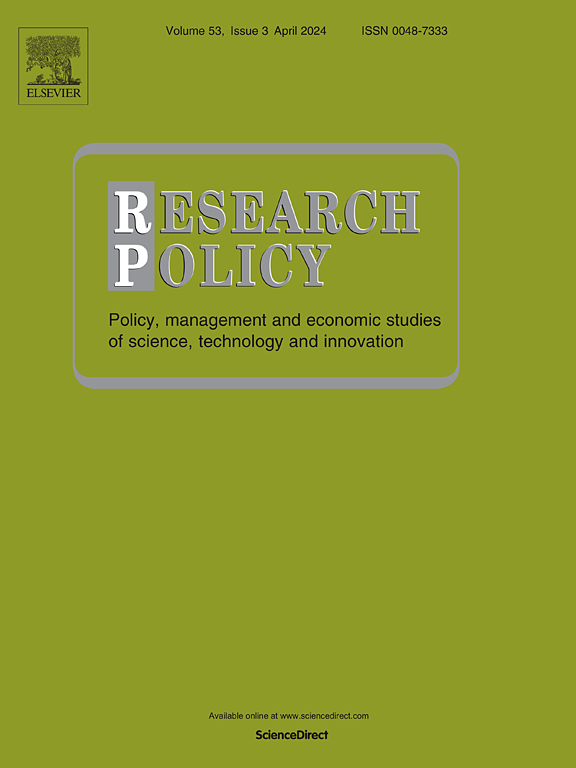Unleashing creative potential: The role of stable institutional ownership in exploratory innovation
IF 8
1区 管理学
Q1 MANAGEMENT
引用次数: 0
Abstract
This study investigates the impact of institutional ownership (IO) stability on firms’ pursuit of exploratory innovation. Utilizing a comprehensive dataset of public U.S. firms from 1990 to 2018, we provide robust evidence that firms with stable IO are more inclined to engage in exploratory innovation. Our analysis identifies three key mechanisms through which IO stability facilitates exploratory innovation: disciplinary, informational, and resource-provision channels. Considering the heterogeneous nature of institutional investors, our extended analysis indicates that the positive effect of stable IO on exploratory innovation is driven by active institutional investors, while the stability of both institutional blockholders and non-blockholders contributes to increased exploratory innovation. Furthermore, we find that the nexus between IO stability and exploratory innovation is more pronounced in firms with concentrated IO. Finally, we find that IO stability also leads to a high level of breakthrough innovation. Overall, our study highlights the critical role that stable IO plays in facilitating firms to overcome learning traps and fostering an environment conducive to exploratory activities within organizations.
释放创造潜能:稳定的制度所有权在探索性创新中的作用
本文研究了机构所有权稳定性对企业探索性创新的影响。利用1990年至2018年美国上市公司的综合数据集,我们提供了强有力的证据,表明拥有稳定IO的公司更倾向于进行探索性创新。我们的分析确定了IO稳定性促进探索性创新的三个关键机制:学科、信息和资源提供渠道。考虑到机构投资者的异质性,我们的扩展分析表明,稳定的IO对探索性创新的积极影响是由活跃的机构投资者驱动的,而机构大股东和非大股东的稳定性都有助于增加探索性创新。此外,我们发现,在内部投资集中的企业中,内部投资稳定性与探索性创新之间的关系更为明显。最后,我们发现IO的稳定性也导致了高水平的突破性创新。总的来说,我们的研究强调了稳定的内部信息交换在促进企业克服学习陷阱和培养有利于组织内部探索活动的环境方面所起的关键作用。
本文章由计算机程序翻译,如有差异,请以英文原文为准。
求助全文
约1分钟内获得全文
求助全文
来源期刊

Research Policy
MANAGEMENT-
CiteScore
12.80
自引率
6.90%
发文量
182
期刊介绍:
Research Policy (RP) articles explore the interaction between innovation, technology, or research, and economic, social, political, and organizational processes, both empirically and theoretically. All RP papers are expected to provide insights with implications for policy or management.
Research Policy (RP) is a multidisciplinary journal focused on analyzing, understanding, and effectively addressing the challenges posed by innovation, technology, R&D, and science. This includes activities related to knowledge creation, diffusion, acquisition, and exploitation in the form of new or improved products, processes, or services, across economic, policy, management, organizational, and environmental dimensions.
 求助内容:
求助内容: 应助结果提醒方式:
应助结果提醒方式:


